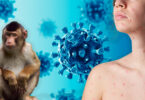Toxoplasmosis is a disease of parasitic origin that occurs after the ingestion of cysts of the protozoan Toxoplasma gondii. These are found in cat feces and contaminated water.
It is a zoonotic disease, that is, it is transmitted to man by different species of contaminated mammals and birds.
The definitive hosts are the domestic and wild cat, and the intermediate hosts are warm-blooded animals (mammals and birds).
Toxoplasmosis is a parasitic infection with a high incidence throughout the world, caused by the parasite Toxoplasma gondii, and which normally goes unnoticed as its symptoms are confused with those of a mild flu. However, when a pregnant woman contracts the infection, or it is reactivated in her body as a result of a deficient functioning of her immune system, she can transmit the condition to the fetus through the placenta, endangering the health, and even the life, of the future baby.
T. gondil is distributed throughout the world.
There are several ways to acquire the infection:
- Ingest products from the soil or soil contaminated with feces from cats or other types of infected felines.
- Eating meat from animals that transmit the disease.
- From the infected mother to the fetus.
- Blood transfusions or organ donation from infected patients.
Currently, the most common way of transmitting toxoplasma is eating uncooked meat (lamb, veal, minced meat), or eating vegetables that are not well washed. These are the main sources of infection in pregnant women, although their incidence is low, around 1-8 cases per 1,000 pregnancies. If the mother contracts the infection during pregnancy, and it is detected early, the chances of transmission to the fetus can be greatly reduced with appropriate pharmacological treatment (spiramycin). If the fetus is found to be affected, pyrimethamine and sulfadiazine may be given to the mother to lessen harm to the baby. The consequences for the fetus is that intrauterine growth retardation occurs, which leads to low birth weight and, if the infection occurs during the first trimester, spontaneous abortion or even death of the fetus can occur. Symptoms that may occur are usually mild and flu-like, or resolve within a few months. Symptoms include: malaise, fever, myalgia (muscle pain), headache, night sweats, pharyngitis, swollen lymph nodes in the head and neck, maculopapular rash, hepatosplenomegaly, unilateral chorioretinitis.
It is very important to take a series of precautions to prevent toxoplasmosis:
You should not eat raw or undercooked meat, or undercooked sausages; you should not consume raw eggs or unpasteurized milk; wash your hands with soap and water immediately after handling raw meat, and do not touch your eyes, mouth or nose with your hands if you have not washed them yet, you should wash fruits and vegetables very well, do not eat outside the home, salads or raw vegetables; avoid working in the garden without gloves; If you have cats, try to keep them from going outside because they get infected by eating raw meat, which could happen if the cat catches birds or mice and eats them.







